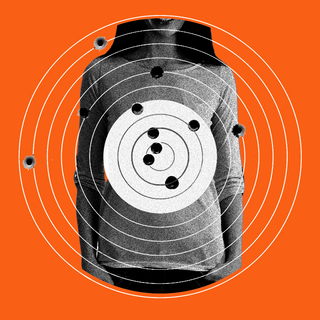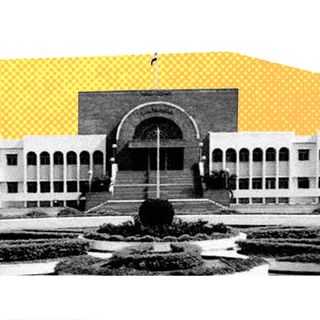The Meghalaya High Court stated last week that consensual relationships between minors can’t be categorized as sexual assault under the Protection of Children Against Sexual Offences (POCSO) Act, 2012. The bench, comprising Justice W. Diengdoh, ruled on a case involving a minor boy and girl, in which the latter had deposed that she had been physically involved with the former of her own free will.
“… if both of them are still very young, the term ‘sexual assault’ as could be understood under the POCSO Act cannot be attributed to an act where, there is, as pointed above, mutual love and affection between them,” the court said.
The POCSO Act is a law that was designed to protect children from sexual abuse of any kind — but a significant gap enshrined in it is that it doesn’t recognize consent. “This has had devastating effects in practice, with thousands of couples falling into the clutches of the law, and young men often being accused of violent crimes that carry punishment[s] of up to life imprisonment,” Scroll had reported.
Previously, the Madras High Court had noted that the POCSO Act wasn’t meant to criminalize adolescents in romantic relationships. The Karnataka High Court also observed that the law wasn’t meant to paint all sexual activity involving minors with the same brush. Child rights activists have flagged that the act contains grey areas which are leveraged by families against young couples who elope or are otherwise caught in relationships. The law — intended to protect children from child abuse — when used in this manner, speaks to society’s anxiety around adolescent sexuality.
There are several avenues that compromise adolescents’ privacy in their exploration of sexuality. Under the POCSO Act, anyone who is aware of any sexual activity involving a child is required to report it to the authorities — and failing to do so could attract a penalty. As a result, young women who are aware that teenage sex is criminalized avoid seeking the reproductive and sexual healthcare they need, for fear of punishment.
Related on The Swaddle:
In India’s Juvenile System, Children Are Criminalized for Their Circumstances
Moreover, the law is based on the archaic presumption that girls are victims and boys are perpetrators — even when both consent to a physical relationship. It assigns criminality to minor boys who, under a new amendment in the Juvenile Justice (Care and Protection of Children) Act, 2015, can be tried as adults if they’re 16 years old or above.
The POCSO Act is a comprehensive piece of legislation that child rights activists welcomed — but not without concerns about consent and moral policing. Prior to the law’s enactment were debates surrounding the age of consent, and when sexual activity between consenting minors in love should be criminalized. The age of consent under the Indian Penal Code was set at 18 for girls (and remains unspecified for boys) — and the definition of a “child” under the POCSO Act consequently means anyone who is below the age of 18.
But there are many who contest this: “there is also a view that sexual activity among children between 16 and 18 years is expected behavior at that age and should not be criminalized, especially as it might become a tool in the hands of those perpetuating patriarchy, casteism, and religious bias,” noted one report by a child rights body.
The gendered aspects of the law mean that it’s often easy to use it to enforce caste and religious endogamy by young women’s families. The protectionism implicit in the law means that families — and communities — can use it to police young women’s sexuality, and prevent inter-caste or inter-religious relationships. It can also unfairly criminalize young boys — especially those who are marginalized. Take the fact that five Dalit boys in Tamil Nadu, who were under the age of nine, were charged under the Act by a dominant caste community. In this case, the law was used as an instrument of casteist violence — making its loopholes and gendered assumptions even more problematic.
Even otherwise, the Act can impact children’s lives by punishing them for exploring their desires. In the present case at the Meghalaya High Court, the accused was a minor himself, who was jailed for 10 months before getting bail. “POCSO cases,” as they’ve come to be known, then comprise a significant portion of young boys who are unfairly criminalized and young girls who are unfairly policed.




